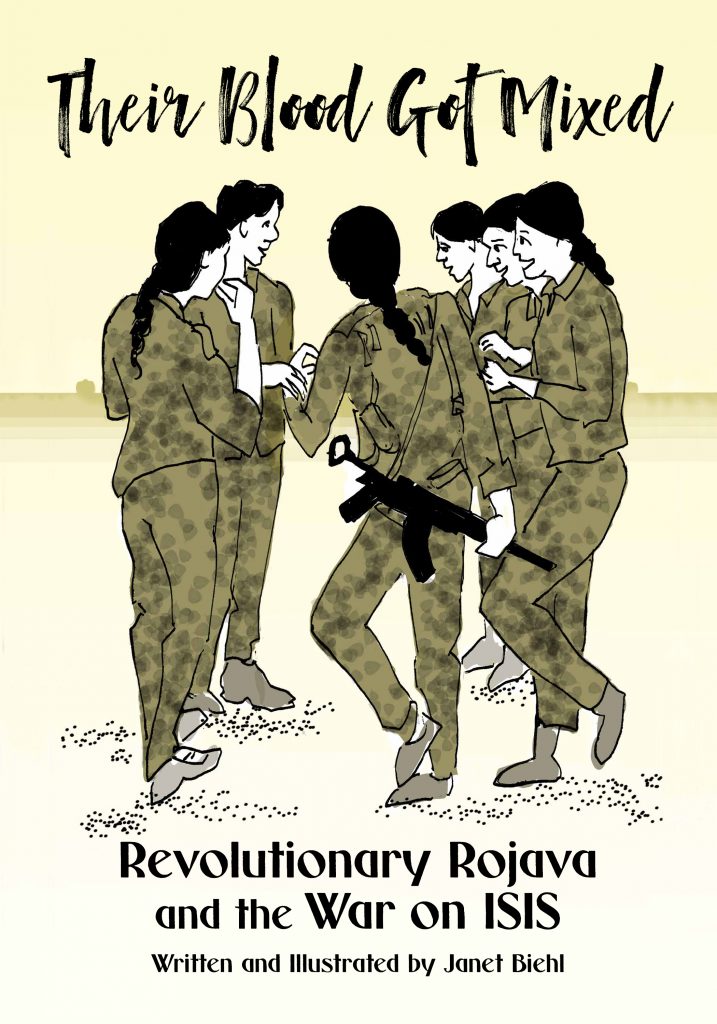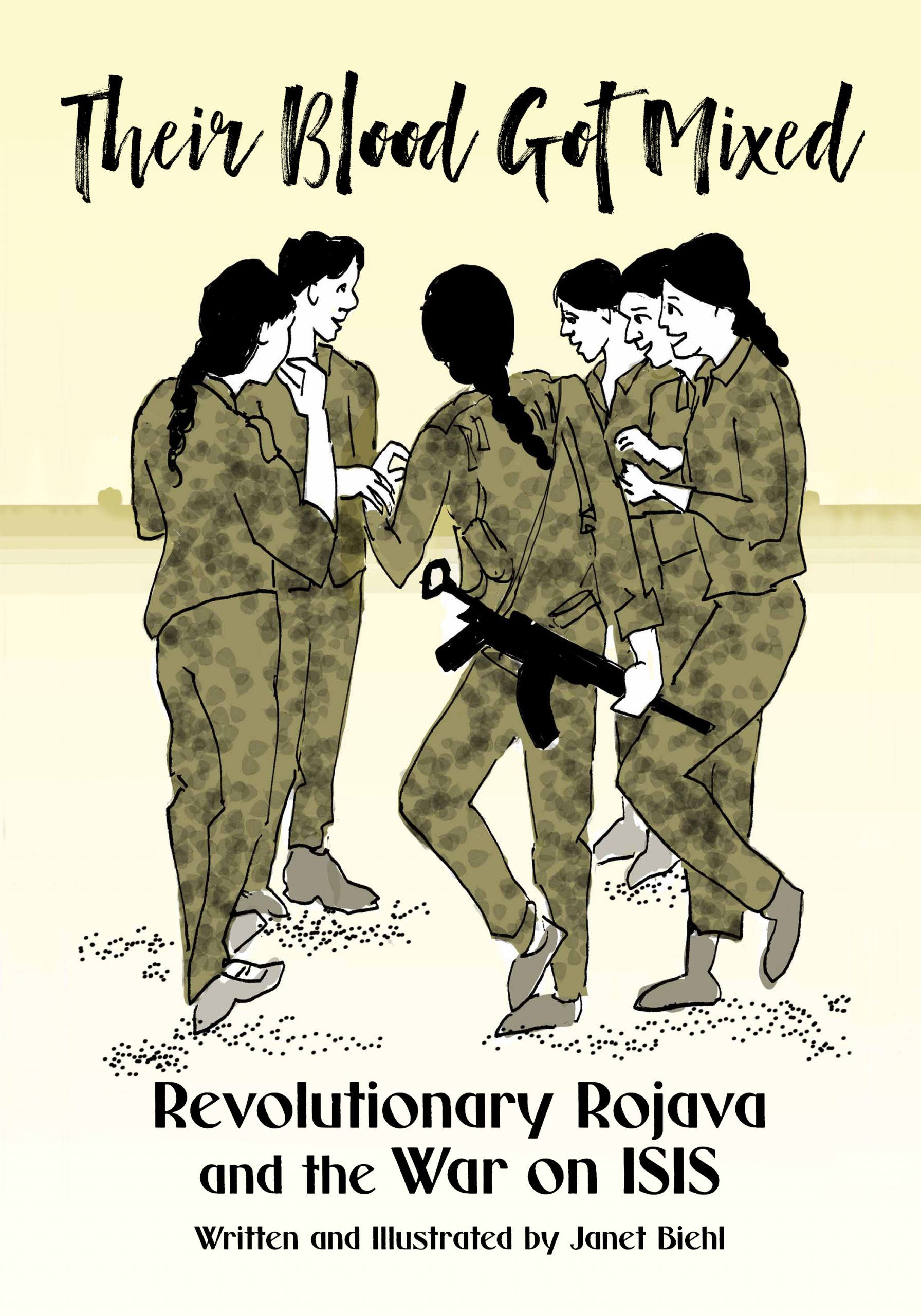By Kleine Kurdistan-Kolumne
https://kurdistan-kolumne.blogspot.com/
An excellent introduction into revolutionary Rojava
During the last decade, there has been a number of written reports and documentary films from the Rojava Revolution, the self-adminstrated areas of North-East Syria and especially the war against ISIS. After Zerocalcare’s “Kobanê Calling” (2015), Janet Biehl’s graphic novel “Their Blood Got Mixed: Revolutionary Rojava and the War on ISIS” makes a timely appearance at the 10th anniversary of the Revolution as the first report from inside Rojava in this artistic format.
Janet Biehl had visited Rojava twice before and translated Flach, Ayboğa’s and Knapp’s “Revolution in Rojava” into English, so she is no stranger to the subject. In 2019, she traveled there again, this time with the documentary filmmakers Danny Mitchell and Ross Domoney. Together with them and several fixers, she conducted many interviews with people from many different backgrounds.
The graphic novel covers a wide range of topics from history to economy, from the details of the democratic proceedings to the horrors of ISIS and the Turkish occupation of Afrin. While this may seem a lot, Biehl manages to give every topic the necessary space to give a good impression of what is going on.
After describing all the atrocities that came with the war against the Islamic State and through the Turkish occupation, she focuses on her main interest: The intricacies of direct democracy and women’s liberation and education.
The drawing style of the portraits looks mostly sketchy and rough, with more detailed, watercolored backgrounds. The combination of text and images works well, with the visuals mostly supporting the text. Since the interviews are placed in chronological order, they sometimes refer to events that explained only later. This may result in some confusion, but is resolved by the end of the book. Biehl manages to put several tonal shifts into the novel, for instance by including poetry or illustrations that stand out on their own.
In most parts, the novel is written like a report, using lots of direct quotes from the interviewees. In more personal parts, Biehl discusses the relationship between her late partner Murray Bookchin’s ideas and Rojava. The imprisoned Kurdish leader Abdullah Öcalan had read several of his books and was very impressed by them. Without doubt, Bookchin’s “communalism” was a significant influence on Öcalan’s ideas of a “democratic confederalism” that he wrote down in prison and that became a blueprint of the Rojava Revolution. We at the International Initiative “Freedom for Abdullah Öcalan—Peace in Kurdistan” tried to establish a written dialogue between Öcalan and Bookchin at the time, but due to Öcalan’s isolation and Bookchin’s declining health, the dialogue did not become as extensive as it should have been. In a way, this graphic novel is a continuation of this dialogue between the ideas of the Kurdish strategist and organizer and the US-American social theorist.
“Their Blood Got Mixed” is a great example of comic journalism in the tradition of Joe Sacco. Covering a wide range of topics, it serves as an excellent and very approachable introduction into revolutionary Rojava.
Janet Biehl: Their Blood Got Mixed: Revolutionary Rojava and the War on ISIS. 256 pages. Available as paperback and epub/PDF from PM Press.







